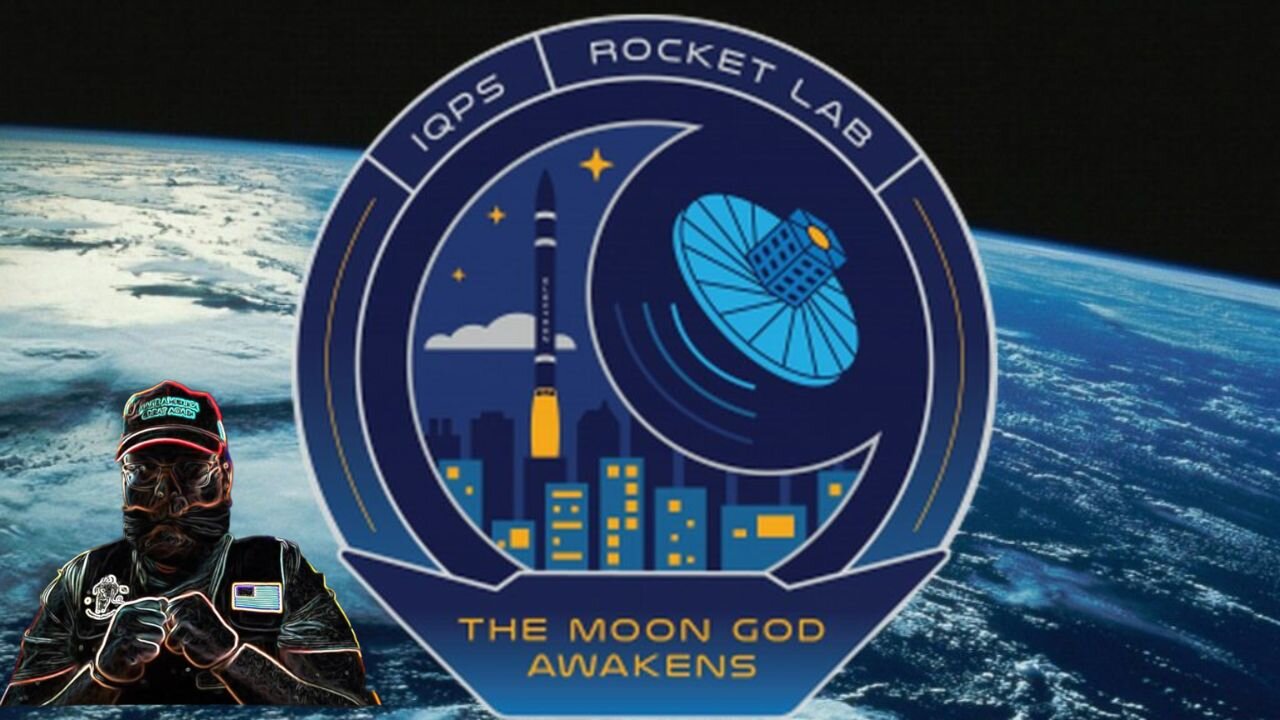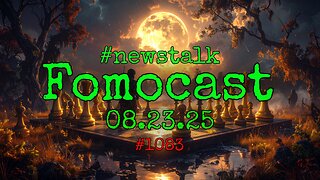Premium Only Content

Rocket Lab 'The Moon God Awakens' Launch
Rocket Lab, Inc. is a publicly traded aerospace manufacturer and launch service provider[4] that operates and launches lightweight Electron orbital rockets[4] used to provide dedicated launch services for small satellites.[5] The company plans to build a larger Neutron rocket[6] as early as 2024.[7] Electron rockets have launched 41 times from either Rocket Lab's Launch Complex 1 in New Zealand[4] or at the Mid-Atlantic Regional Spaceport in Wallops Island, Virginia, United States.[8]
Two attempts have been made to recover an Electron booster by helicopter.[9][10] In addition, four attempts have been made at soft water recovery.[11][12][13][14] As of 2022, the company is developing the bigger Neutron reusable unibody rocket;[7] Photon satellite buses,[15][16] and rocket engines: Rutherford,[17] Curie,[18] HyperCurie,[19] and Archimedes.[20]
The company was founded in New Zealand in 2006.[21] By 2009,[22] the successful launch of Ātea-1[22] made the organization the first private company in the Southern Hemisphere to reach space.[21] The company established headquarters in California, US in 2013[23] and developed the expendable[24] Electron rocket.[25] The first launch of the rocket took place in May 2017.[26] In August 2021, the company became a public company, listed on the Nasdaq stock exchange through a SPAC merger.[27] In May 2022, after four years of development, the Electron booster attempted recovery by a helicopter.[9]
In 2021, the company had 525 staff in New Zealand and about 150 in the rest of the world, mostly the United States. The acquisition of SolAero added 425 staff members in the United States in January 2022.[28][29]
History
Founding (2006–2012)
The company was founded in June 2006[21] by Peter Beck in New Zealand, after a trip to the United States.[30] During the trip, Beck realized the possibility and potential for a low-cost small vehicle. While contacting potential investors, he met Mark Rocket,[31] who would later become a key seed investor in the company and was the co-director from 2007 to 2011.[32] Other investors to the company includes Stephen Tindall,[33] Vinod Khosla, and the New Zealand Government.[34]
The company became the first private company in the Southern Hemisphere to reach space after launching its Ātea-1 sounding rocket in November 2009.[35] The payload was not recovered, as it was deemed to be unsuccessful. The payload was a ballistic instrumentation dart and its trajectory depended only on the boost phase of flight.[36] The launch took place off the coast of New Zealand, from the private island (the Great Mercury Island) of Michael Fay, a New Zealand banker and Rocket Lab investor.[37] A second early investor was Stephen Tindall, a New Zealand entrepreneur.[37]
In December 2010, the company was awarded a U.S. government contract from the Operationally Responsive Space Office (ORS) to study a low cost space launcher to place CubeSats into orbit.[38][39][40][41] The agreement with NASA enabled the company to contract for limited NASA resources such as personnel, facilities, and equipment for commercial launch efforts.
-
 2:40:10
2:40:10
DLDAfterDark
7 hours ago $0.29 earnedDLD Live! Feat. Red Dawn Readiness! Glock FRT's - Striker Fire Safety Concerns - ACE Trigger
23.3K1 -
 2:40:21
2:40:21
BlackDiamondGunsandGear
6 hours agoAre ALL Striker Fired Pistols UNSAFE? // After Hours Armory
43.6K7 -
 6:34:50
6:34:50
SpartakusLIVE
11 hours ago#1 Saturday Spartoons on RUMBLE PREMIUM
113K7 -
 1:04:59
1:04:59
Man in America
12 hours ago“Summoning the Demon” — The AI Agenda Is FAR WORSE Than We Know w/ Kay Rubacek
50.5K35 -
 2:16:48
2:16:48
Tundra Tactical
10 hours ago $0.11 earned🎯💥 The World’s Okayest Gun Show 🔫😂 | LIVE Tonight on Rumble!
31.3K -
 3:36:03
3:36:03
Mally_Mouse
1 day ago🌶️ 🥵Spicy BITE Saturday!! 🥵🌶️- Let's Play: Tower Unite!
57.1K2 -
 58:59
58:59
MattMorseTV
10 hours ago $1.61 earned🔴Trump just BROKE Newsom.🔴
73.1K85 -
 18:14
18:14
Her Patriot Voice
10 hours agoWho Is WORSE for NYC: Trump Girl or Socialist?
55K34 -
 3:39:42
3:39:42
SavageJayGatsby
9 hours agoSpicy Saturday with Mally! | Road to 100 | $300 Weekly Goal for Spicy Bites!
51.7K1 -
 3:35:50
3:35:50
FomoTV
11 hours ago🚨 Swamp Theater: FBI Raids Bolton 🕵 Still NO Epstein Files, Trump's Troops & the Red Heifer Hoax 🐂 | Fomocast 08.23.25
23.9K7